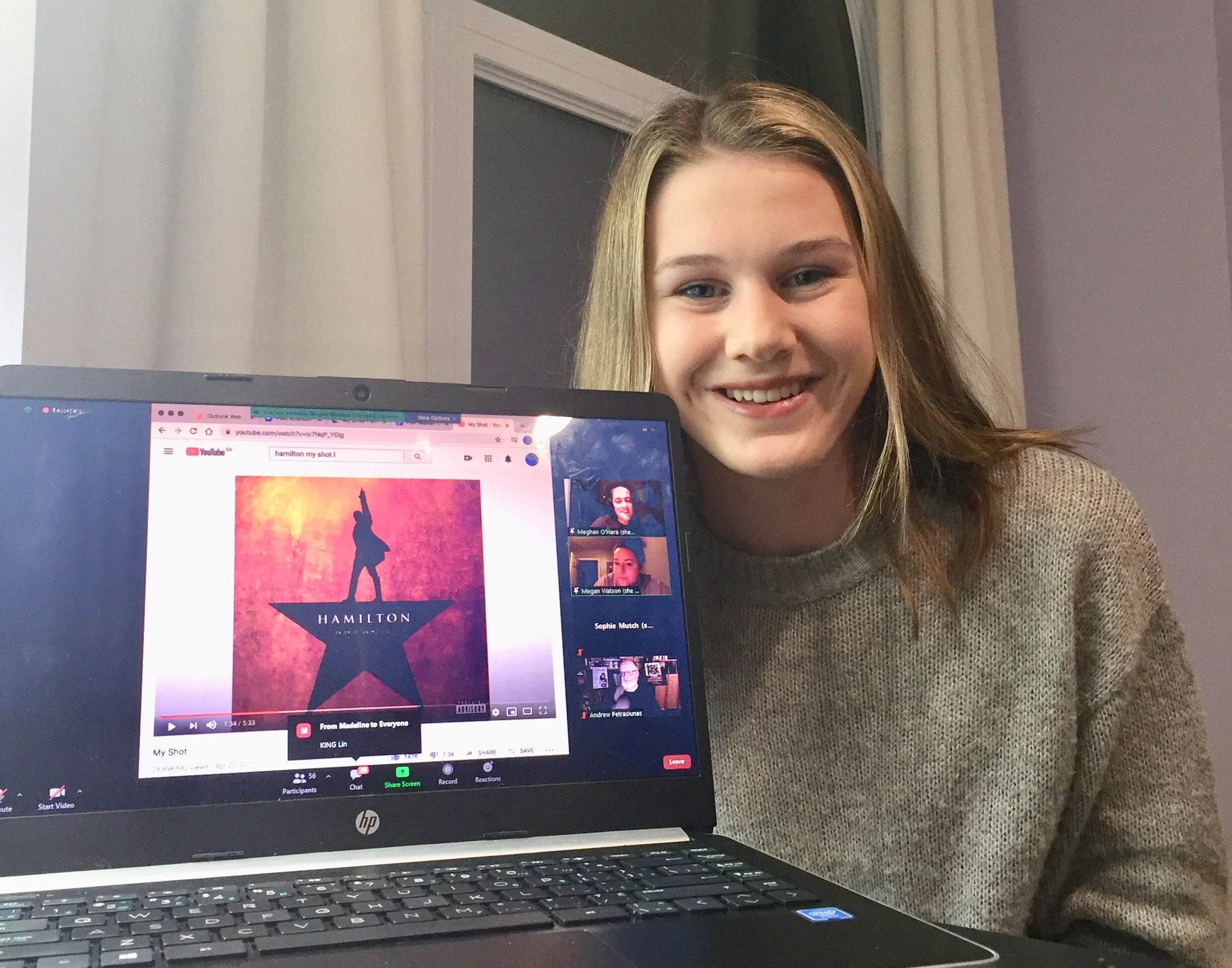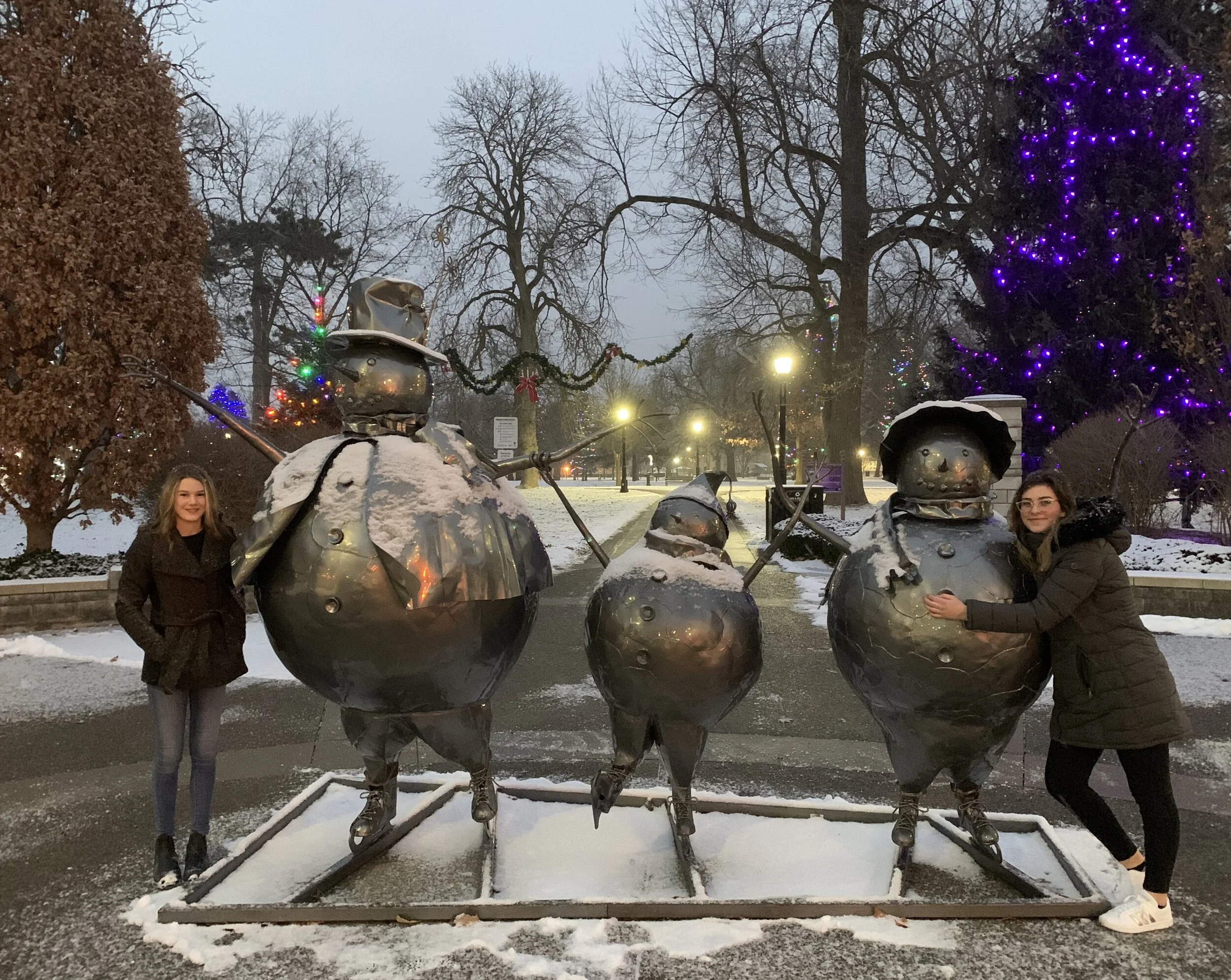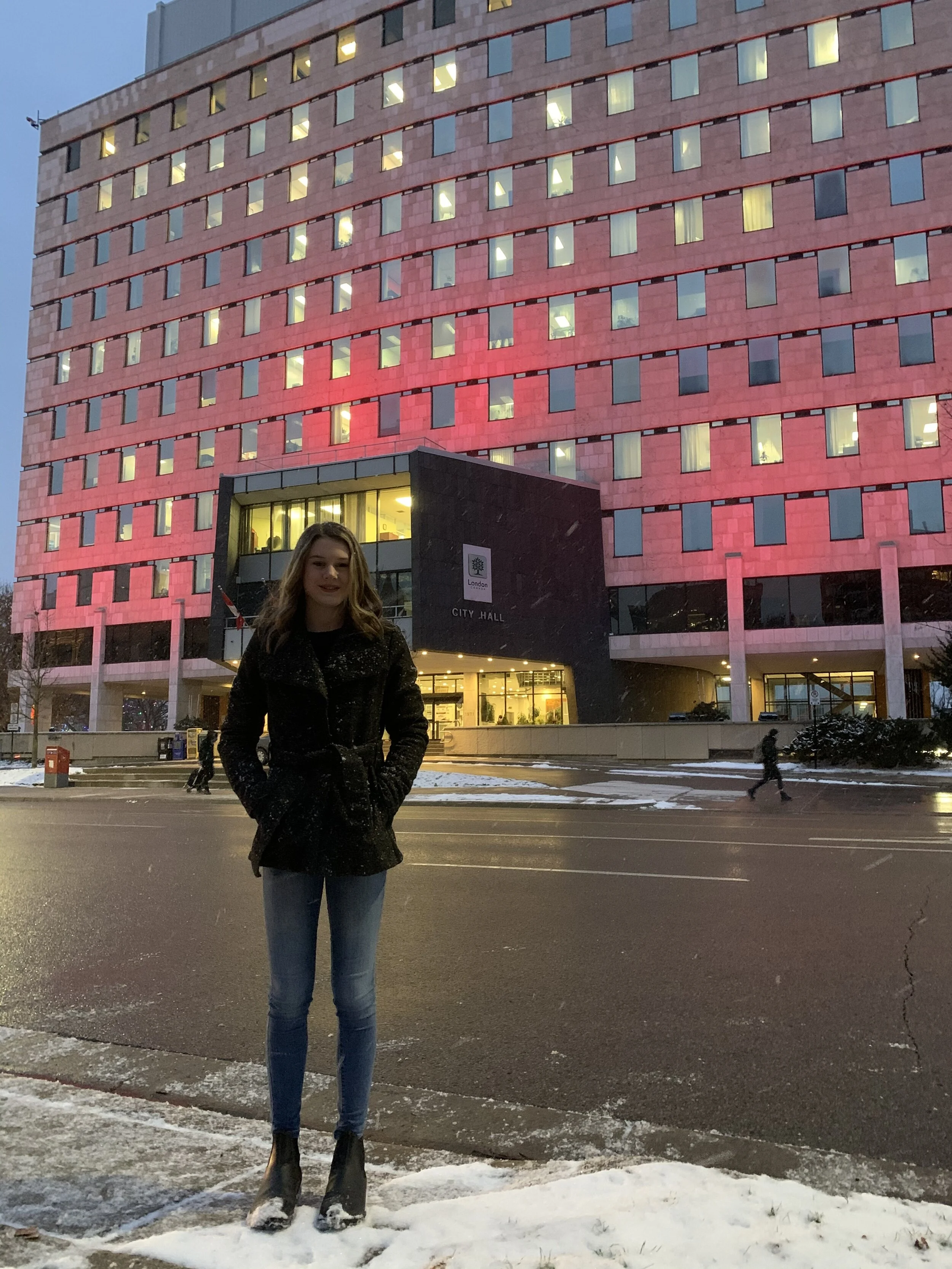Hanging On to the Performing Arts in a Pandemic
Sophie Mutch of young & free press is participating this year in the ‘High School Project’ through the Grand Theatre in London. Typically, this involves students being mentored by professional artists, and putting together a production on-stage at the Grand! With the pandemic, the High School Project has shifted to virtual workshops. Sophie took this photo during a ‘Hamilton Dance Break’ — essentially, an opportunity for everyone to get up, stretch and move while attending one of the virtual sessions!
Many performing arts programs and venues have been affected by the COVID-19 pandemic. Cancelled shows and disrupted plans have hurt arts and culture organizations financially and operationally. This has deeply affected the arts community worldwide. Fortunately, many groups in London and elsewhere have found ways to offer programs virtually. However, this may not be sustainable if the pandemic continues to impact the arts sector negatively for months or years to come.
The performing arts are enjoyed by all, although some may not realize the full importance of television, music, film, theatre and dance. Many adolescents find their niche in the performing arts community and develop a genuine sense of belonging. This may be one of the most important reasons why the arts need to be maintained and kept accessible during the pandemic and beyond. ‘‘Music is an outlet, especially for those who feel isolated,’’ notes Michelle Rees, Thames Valley District School Board Arts Learning Coordinator and All City Choir Director. “It is what we turn to in times of hardship.”
Adolescents can be incredibly stressed while worrying about school, trying to build friendships, applying to post-secondary programs, and participating in extracurricular activities. The performing arts provide a release and are especially important during a pandemic because it can be difficult to feel a sense of community when physically isolated. Almost everyone can feel connected through the performing arts community, and for many, this is a way of escaping whatever else may be happening in life. The performing arts provide teenagers an opportunity to spend time with people who are incredibly open and accepting while doing something they really enjoy. This is crucial to the mental health and well-being of many adolescents. We need the arts to continue to be accessible and available to all who wish to participate.
Accessibility has become more challenging during the pandemic because some programs are not available virtually, each individual does not necessarily have a device to use all the time, certain programs simply require space and in-person contact, and some associations have had to close permanently due to financial losses after being shut down for so long. ‘‘These groups rely on funding through ticket sales to their performances and fundraising ventures that can’t happen right now,” explains Rees, who is navigating these issues as director of All City Choir. The organization brings young people together to sing in rehearsals and public performances around London. According to Rees, “If groups are trying to pivot and continue on, their expenses don’t just go away. As a children’s choir conductor of a charitable organization, we also have to be aware of the financial impact the pandemic has had on our choir members’ families. Are they still able and willing to pay membership fees for an online experience? What can we do as an organization to support those who need it while still covering our expenses?” Given that the arts are especially important to the well-being of many adolescents, it can be hard for organizations to find the right balance between ensuring that their organizations are viable and still having families be able to receive arts programs in difficult times.
Along with financial concerns, rehearsal space is an issue. Schools and churches are typically options, but not at the moment. Meeting virtually allows some connection among members of the arts community, but there are many technical challenges, especially for musical timing.
The Grand Theatre runs a program every year entitled the ‘High School Project’ in which secondary school students audition to be in a show. Teens take on the challenge of being set designers, costume creators, orchestra musicians, and actors on stage. This year, a show about P.T. Barnum and his circus, titled Barnum, was set to be the High School Project, and would have been presented at the Western Fair while The Grand Theatre was undergoing renovations. One of the goals of performing at the Western Fair was to bring the arts out to a wider audience who may not typically visit The Grand. This is the first year that I would have been eligible for the High School Project. I had been looking forward to auditioning for this program for a couple years, and was saddened when I heard that this had been cancelled. Luckily, instead of shutting down the High School Project completely, there will be virtual workshops and group work twice a week from October 16th to November 16th, and high school students can learn the ins and outs of producing a professional show. Selected applicants will be taught about the intricacies of a show from the beginning to the final production. I think that this is a great way to adapt, and an exciting opportunity for those interested in theatre.
Many choirs are unable to perform this year due to public health restrictions. For school choirs that are run as a course for credit, some are able to rehearse due to innovative problem-solving by teachers and school board coordinators. As part of choir at my school, I have attended a couple of outdoor rehearsals, and although the extra health precautions make it much harder to hear the other students, it is certainly better to be together this way rather than having no choir at all.
Outdoor choir practice this year at Sir Frederick Banting Secondary School in London.
Although it has become much harder to coordinate performing arts events while staying safe and keeping everyone healthy, many organizations have developed creative ways to engage youth. For the individuals who compete yearly in the Kiwanis Festival, the spring 2021 Festival has been re-imagined as a virtual event. This will be the 61st Kiwanis Festival, which indicates how well-known and appreciated the Festival is in London. Hopefully we see more and more of these virtual programs pop up!
There are a few themes emerging for the performing arts through the pandemic. How viable are virtual and outdoor options? What level of investment will be required to make these platforms work during the pandemic and beyond? Will young people have sufficient opportunities to engage in the arts, and if not, what will the impact be on our mental health and social well-being?
‘‘Now more than ever we need to find a way to come together and continue the things that feed the soul,’’ says Michelle Rees, and I wholeheartedly agree.






